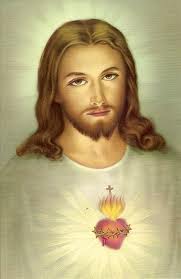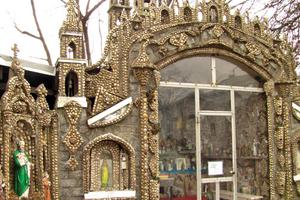Anti-Christian Extremists Torch Church of the Multiplication
JERUSALEM — Church leaders in the Holy Land are again criticizing the Israeli government for not doing enough to apprehend and convict the vandals who set fire last month to the Church of the Multiplication of the Loaves and Fish.
The church, on the shores of the Sea of Galilee, in Tabgha, commemorates Jesus’ feeding of the 5,000.
The arson took place inside the Tabgha monastery on June 18, according to the Latin Patriarchate of Jerusalem. It was strongly condemned by the patriarchs and heads of Holy Land churches. The fire sent an elderly Benedictine monk and a church volunteer to the hospital with smoke inhalation and damaged much of the cloister located in front of the church.
“The losses are estimated at several million shekels,” the patriarchate said via its website (LPJ.org).
The vandals scrawled, in Hebrew, “The false gods will be eliminated” (a quote from the Jewish Aleinu prayer),” an expression anti-Christian vandals have used before in some of the many attacks on Christian, Muslim and Arab property during the past few years.
This was the second attack on the Tabgha church, presumably by Jewish extremists who, Church and Israeli officials believe, have carried out dozens of attacks. The vandals, none of whom have been convicted of a crime, are reportedly trying to extract a price — the incidents are called price-tag attacks — from the Israeli government for limiting Jewish settlement building in the West Bank.
On June 21, during a demonstration against the attack held at the damaged church, Msgr. Michel Sabbah, Latin patriarch emeritus of Jerusalem, criticized Israeli authorities for not bringing the vandals to justice.
“The state should know its duty, and the responsible figures should fulfill their duty,” Msgr. Sabbah told reporters. “If the government had been serious in the follow-up of the latest attacks against Christian and Muslim institutions, these attacks would not have been repeated.”
Msgr. Sabbah said the Church is seeking police action, not protection.
“We ask nobody for protection, neither locally nor externally. We are not minors. The state is like a minor, for it is not able to fulfill its duty towards all citizens. An arson like this one cannot take place in any other country without the state’s immediate intervention to find and punish the criminal. Over here, the state knows the criminal, but does nothing about it.”
In an article on its website, the patriarchate said the vandals are “extremist Jewish settlers” trying to punish and humiliate the Israeli government.
“Aggressors are rarely arrested or condemned by the Israeli authorities,” the article noted.
Israel Police spokesman Micky Rosenfeld told the Register that 16 suspects were brought in for questioning but were later released.
Police efforts to apprehend the attackers, who Rosenfeld said are spurred by “nationalist motives,” are ongoing and focused mainly in the West Bank and East Jerusalem, the sites of previous investigations.
Auxiliary Bishop William Shomali of the Latin Patriarch of Jerusalem told the Register that the Church has heard these statements before.
“The police affirm working hard in order to arrest the criminals, but we have never heard that the doers were arrested and punished, despite the fact that these racist attacks are repeated over and over again.”
Bishop Shomali said the police must “change method and strategy. ... We want to see results on the ground.”
Legionary Father Eamon Kelly, of the Pontifical Institute Notre Dame of Jerusalem Center, said that the police must do their jobs, but “the problem is deeper than external security provisions can solve.”
Father Kelly called for Israel and other nations grappling with extremists to help educate toward “a culture of at least minimal respect for the other and then, eventually, of generous encounter with the other.”
Although this is already happening in Israel on a grassroots level, he said, unless this resolve becomes a strong movement inside Israel “in order to coalesce the political will of the entire country against such evil, nothing will change.”
Father Kelly said that while several rabbis he interacts with in interreligious dialogue “are the first to point out that Christian churches, especially the Catholic Church, have worked on our problematic narratives” regarding the Jewish people, they “often lament the lack of corresponding strides on their side. Some Jewish religious leaders are doing wonderful educational work in this regard, but it must become mainstream.”
In the meantime, Father Kelly said, Christians in the Holy Land are feeling “more than insecure.”
“Christians feel sad and frustrated” that in an area that enjoys such a plurality of religious expressions “this kind of violence occurs frequently and, with the exception of promises, goes completely unchecked.”
Each attack, he said, “reminds us how long-established religious co-existence remains fragile and needs continual strengthening. Many Jewish friends around the world have written — horrified, deeply embarrassed and expressing sincere apology. Every Jewish person I knows celebrates that we are here, so I don’t feel less welcome.”
Following Mass in the village of Shefa-Amr, Kamil Azzam, a Catholic resident of this mixed Christian-Muslim-Druse town in Galilee, said he and the Holy Land’s other Christians “are heartbroken” over the church arson and the many attacks against property, regardless of religion.
“Since 2009, vandals have struck 40 churches and mosques; and until today, not a single person sits in prison. I’d call that a little abnormal.”
Michele Chabin writes
from Jerusalem.
- Keywords:
- July 12-25, 2015
















